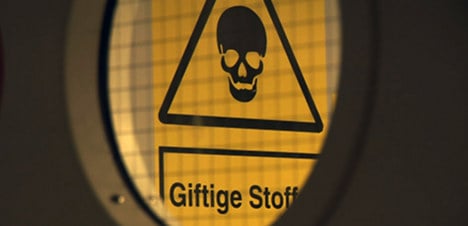While most of us are aware that we are surrounded and affected by any number of chemicals every day, few of us are well informed of the potential dangers even the most unlikely products and activities pose.
Today there are probably some 60 million or so chemicals, including around 145,000 registered industrial chemicals in the world, and by no means all of these are tested and guaranteed to be safe.
The spread of dangerous chemicals, coupled with the general lack of knowledge about them in our everyday environment, could lead to a global human catastrophe, according to Åke Bergman, professor of environmental chemistry at Stockholm University.
“My biggest fear today is that there are too many chemicals that we do not have enough control over,” says Bergman. “We, as researchers and authorities, have done a lot of work with the chemicals that we know about already, but if we don’t work harder with those we are not so knowledgeable about, we could well have
uncomfortable surprises in the future.”
Over the years, hot topics like biodiversity, conservation, and climate issues have pushed chemicals and their consequences down the list of high profile causes, so when Bergman was asked to participate in a film highlighting the dangers inherent in the spread of chemicals, he saw it as a chance to redress that balance.
In Submission, (Underkastelsen in Swedish) filmmaker Stefan Jarl examines his blood and discovers hundreds of different substances in it he had no idea about.
“Stefan Jarl came to me and suggested making a film,” says the professor. “I said it was precisely what I wanted to do, but I am aware that if an academic makes a film, it will be most likely be hopeless, so it was up to me to make sure that it was factually correct and to help Jarl find the right way through the jungle, so to speak.
“In the end I was really pleased that the film came out, because it has a major political significance,” says Bergman.
The intention of the film is to have an effect on society at large, in the same way that Fast Food Nation and Supersize Me have had on the food industry.
It also highlights how frustrating it is to Bergman that we as individuals have very little chance of making a major difference, but he insists nevertheless that there are glimmers of hope.
“It is a political question of course, but on a business level, companies like IKEA and H&M take these kinds of issues very seriously. They can help put pressure on, and try to force change,” says Bergman.
Meanwhile, further afield, he has also seen signs of encouragement.
In China, which has enormous production and consumption, major steps have been taken and there is a clear interest to improve the situation from an academic viewpoint, according to the professor. There, Bergman has been involved in a partnership – part-funded by Swedish international development agency SIDA – with the third largest university in Shanghai, to build facilities and help develop environmental policies in his area of expertise.
Meanwhile, he is currently doing a review on endocrine disruptors for the United Nation Environmental Program (UNEP) and World Health Organization (WHO).
The goal is to update research on hormones but mainly to warn of the dangers chemicals can pose. He will go to Nairobi in September to continue his work.
Bergman is worried about the possible effect chemicals have on our bodies, how they are connected to certain diseases and how they interact with our hormone system.
Although many health statistics have been improving over the past few decades, a few illnesses are rising mysteriously. From the early 1980s to the late 1990s, for example, autism increased tenfold; from the early 1970s to the mid-1990s, one type of leukaemia was up 62 percent, male birth defects doubled, and childhood brain cancer was up 40 percent.
Some many experts suspect a link to the man-made chemicals in our food, water, and air there is pretty strong circumstantial evidence that obesity and diabetes are two diseases that can be related to the intake of dangerous chemicals.
Meanwhile, another area Bergman has been working with since the 80s is the use of flame-retardants; chemicals added for safety to just about any product that can burn. These can be found in mattresses, carpets, the plastic casing of televisions, electronic circuit boards, and cars, to name just a few.
”I want to see a more active chemical policy in Sweden and the EU, because it is a very hot question for the development of a sustainable society, health and prosperous environment,” says Bergman.
And with Bergman’s continuing work on international and national levels gaining more and more recognition, and the higher profile likely to result from the distribution of Submission, he could be about to get his wish.
Article sponsored by Stockholm University



 Please whitelist us to continue reading.
Please whitelist us to continue reading.
Member comments